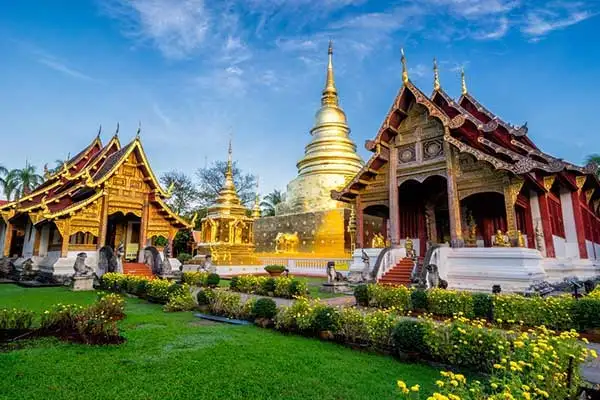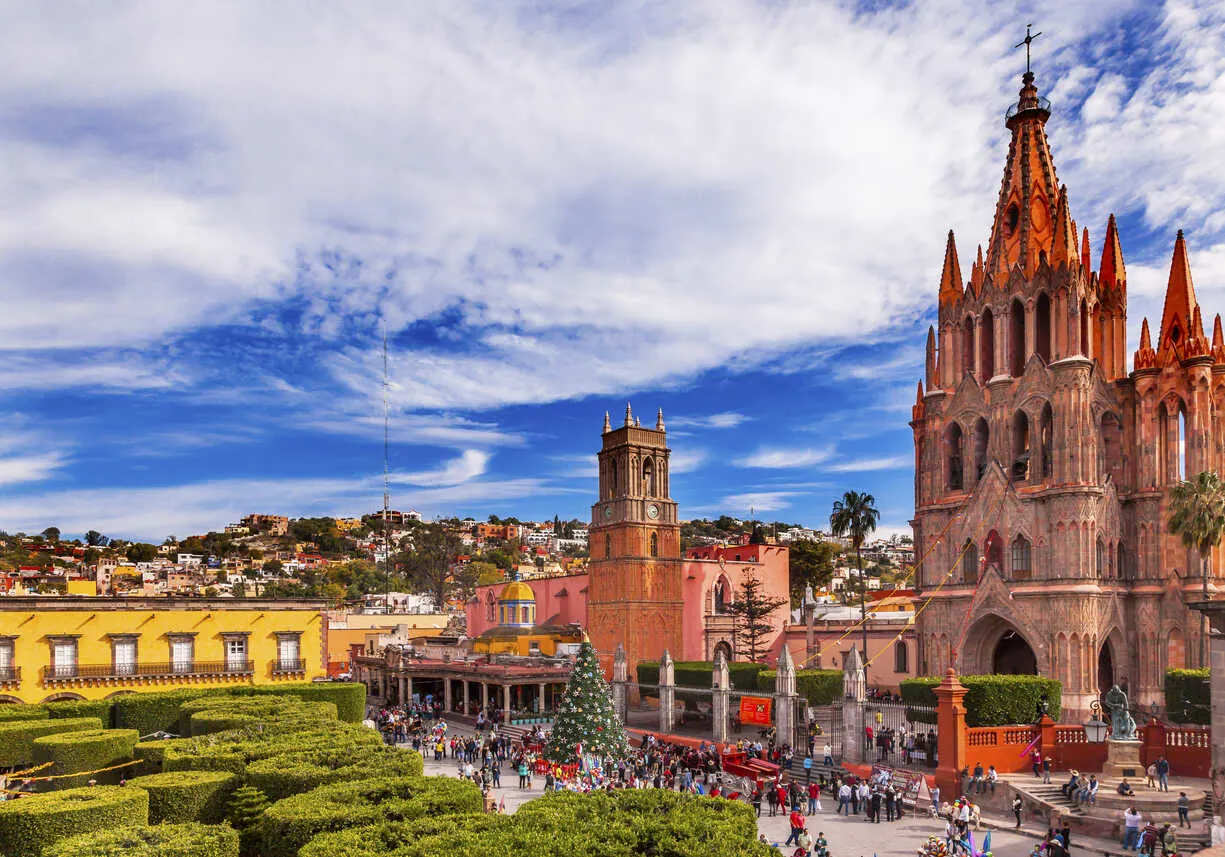By Terry Coles
While many people dream about retiring early to enjoy life, far less actually manage to pull it off. Of course, the biggest issue for most is money. Financial experts throw figures at us, like one million dollars, assuring us that retirement will not be possible unless we can manage to stash away this much money. But for most of us who spend every last dollar that we earn just to cover our monthly expenses, saving money never happens. Typically, our list of must have’s will include a mortgage on a house, a car loan for each member of the household who drives, expensive health insurance, and major credit card debt.
But there are some of us, like my husband Clyde and I, who managed to pull it off without being millionaires. It’s hard to believe, but we have been retired now for 10 years, and I’m not even retirement age yet. So how did we do it and can it be done while living on a budget? Yes, it can.
Get Your Free Portugal Report Today!
Get Your Free Portugal Report Today!
Discover why we love a slower pace of life in Portugal and info on other European countries in our daily postcard e-letter. Simply enter your email address below and we’ll send you a FREE REPORT – Explore the Old World in Laidback Portugal.

By submitting your email address, you will receive a free subscription to IL Postcards, The Untourist Daily and special offers from International Living and our affiliates. You can unsubscribe at any time, and we encourage you to read more about our Privacy Policy.
Like most people in the U.S., we were living the American dream. Two cars with hefty monthly payments, a mortgage on a house with extra expenses for property taxes, flood and hurricane insurance, utility bills, gym membership, and plenty of credit card debt. We had little to no money in the bank saved for a rainy day, let alone any saved for retirement. Whenever I wanted a new pair of shoes or most anything else I would simply pull out the plastic and pay with a credit card. The statements came monthly, and we paid the minimum balance, watching as the credit accrued.
This was a second marriage for both of us. Clyde was a career firefighter and paramedic for thirty years in Corpus Christi, Texas where I worked in medical offices. Our combined income was around $85,000.
Although Clyde loved what he did for a living, he also knew that running into burning buildings was not something that an old man should be doing. Throughout his career, he had always dreamed about retiring early and had the number 57 etched in his brain, when I was just 51.
But his ex-wife was entitled to receive a good chunk of his pension after he retired, and our health insurance was going to cost $1,400 a month leaving us around $2,800 per month to live on.
Then Clyde had a brainstorm and approached me with the idea. He said, “if I can find a place outside of the U.S. where we can live comfortably on my pension, would you go?” I said, sure, where are we going and when?
But first, we had to come up with a strategy and take a closer look at the big picture.
A few years earlier Clyde began searching for advice on how to get out of debt and soon came up with a course of action. Our first mission was to stop using our credit cards. If we couldn’t afford it, then we didn’t need it. We started by paying off the card with the highest interest rate, and when that one was done, we proceeded to the next. Surprisingly, it became easier over time, and with each card paid off, we had that much more money to put toward our next debt. In the end, we still had car payments and a mortgage, but we were getting closer to our dream.
Get Your Free Report on the World's Best Places to Retire:
Get Your Free Report on the World's Best Places to Retire:
Learn more about the best places in the world to retire in our daily postcard e-letter. Simply enter your email address below to sign up for our free daily postcards and we'll also send you a FREE report on The World's Top 10 Retirement Havens.
By submitting your email address, you will receive a free subscription to IL Postcards, The Untourist Daily and special offers from International Living and our affiliates. You can unsubscribe at any time, and we encourage you to read more about our Privacy Policy.
Then we took a look at our possessions that we accumulated over time and decided that much of the stuff had to go. Everyone has too much junk, stuff, things, and trappings that weigh us down. Just look into any cabinet, closet, or garage and see the years-old memories that have accumulated.
We decided to have a garage sale to pass on some of our unwanted treasures. Admittedly I was sad to see our belongs strewn about on tables in front of our house waiting for would-be bargain hunters to paw through. But the few thousand dollars we gained from our yard sale was put toward another bill, helping us inch a bit closer to our goal of retirement.
As the time grew closer to retirement we had to deal with our vehicles. Mine was a Toyota Prius Hybrid and Clyde had a small Toyota truck. Money was still owed on both of them. But as luck would have it, a letter came in the mail from Toyota offering to buy back used vehicles as supplies were low. While this sounded too good to be true, we went into our local dealer to inquire. In the end, the dealer paid off our vehicles and we walked away with thousands of dollars in our pockets to use on our next car purchase.

Then all that we had left to sell was our house which we priced right, and it went quickly. Now we were ready to walk away from the working world and begin a new life somewhere else, but where?
With the help of publications like International Living, Panama seemed like the best choice for us. It offered a hot, year-round climate which we were used to having lived in south Texas, was close to the U.S., offered a great retirement program and good healthcare. Neither Clyde nor I had ever traveled internationally before which made this dream of ours sound even crazier. But after just one exploratory scouting trip to Panama, we decided to make the move.
Still attached to the little bit of stuff that we had left, I insisted on shipping our stuff to Panama. The cost was around $8,000 (and this was 10 years ago), it took six months for the stuff to arrive, so we had to buy more stuff in the meantime to use while waiting for our stuff, and most of the stuff we never used again. Lesson learned: holding onto stuff costs money.
So why retire abroad? One major factor for us was healthcare. Remember that number of $1,400 a month for health insurance? That amount was half of Clyde’s pension and there was no way that we could live on what was left in the U.S. But by moving out of the U.S. we could easily find a place where we could live comfortably on his pension.
Our first rental in Panama was a three-bedroom, private house that was just three years old at the time. It was lovely with shiny, white tiled floors throughout, fruit trees outside, and the cost, just $300 a month. After enjoying life there for six months we found the perfect house to buy with the money that we had managed to save prior to the move.
For just $90,000 we bought an older home with four bedrooms and three bathrooms on an acre of land with plenty of fruit trees and tropical plants. Although it had good bones the house needed tons of work which we did ourselves to cut costs and because we had plenty of time.
Get Your Free Panama Report Today!
Get Your Free Panama Report Today!
Learn more about a healthier outdoor life in Panama in our daily postcard e-letter.
Simply enter your email address below and we'll send you a FREE REPORT -- Panama: Easy, First-World Living and the World’s Best Retiree Program.

By submitting your email address, you will receive a free subscription to IL Postcards, The Untourist Daily and special offers from International Living and our affiliates. You can unsubscribe at any time, and we encourage you to read more about our Privacy Policy.
For five years we lived like royalty on Clyde’s small pension with extra money to spare. I could see an English-speaking doctor for around $20, a mammogram cost just $25 and I had a full hysterectomy for $4,500 paying out of pocket, which included three days in the hospital. Healthcare was good, affordable and many doctors spoke English.
Life in Panama was wonderful until I convinced Clyde to take our first-ever trip to Europe. We fell in love with the idea of travel and knew that it was time to move on and live somewhere else. Moving abroad had given us the guts to explore more of the world.
This time would be different, so we sold our house in Panama with everything in it and walked away with two carry-on-sized suitcases each. The stuff that was holding us down was gone.
Getting rid of our stuff was the most rewarding, yet the hardest thing I’ve ever had to do. What I first cried over later gave me such freedom. Retirement is that time in life to collect memories from shared experiences through travel instead of collecting things that weigh us down.
For the next two years, we lived as nomads, owning nothing except what was in our small suitcases. The profit made from selling our Panama house would help to fund our travels around the world. But to travel inexpensively we became house and pet sitters. We were given free accommodations and in turn, we cared for a home and pets, while exploring the country we were in.

Our friends on social media thought that we were rich because we could afford to travel the world. But what they neglected to understand is that we owned nothing and had no monthly expenses. It was from a house and pet sit that we discovered Portugal and decided to make it our next home. Portugal offers expats both public and private healthcare options, low-cost health insurance, along with an affordable lifestyle.
For the past three years, we have enjoyed living as Europeans in a country with warm, welcoming locals, gorgeous beaches, stunning landscapes, and affordable, old-world charm. We plan to rent long-term as we have no need for another house or more stuff at this point in our lives.
Clyde and I were able to retire early because we left the U.S, gave up our stuff, and were willing to embrace a new lifestyle. Still today we have no debt, credit card, or otherwise. We live within our means or below it, to save money for future travel.
Along with unloading our stuff we had to be willing to break the ties that bound us to our grown children, families, and friends back in the U.S. While I do realize that this is the hardest part for many who consider living abroad, with the help of social media they are never far away.
Get Your Free Portugal Report Today!
Get Your Free Portugal Report Today!
Discover why we love a slower pace of life in Portugal and info on other European countries in our daily postcard e-letter. Simply enter your email address below and we’ll send you a FREE REPORT – Explore the Old World in Laidback Portugal.

By submitting your email address, you will receive a free subscription to IL Postcards, The Untourist Daily and special offers from International Living and our affiliates. You can unsubscribe at any time, and we encourage you to read more about our Privacy Policy.
A few things to consider before you decide to retire abroad. Can you leave behind all that is comfortable and embrace change? If not being able to find your favorite brand of peanut butter is a deal-breaker then perhaps this is not for you. Are you willing to learn a new language, embrace a new culture and new way of living? Will not having a clothes dryer or window screens ruin you? Yes, they are available but not common in many countries.
My advice to anyone thinking about early retirement abroad is this. Move abroad with an open mind, plenty of patience, and be willing to embrace the differences. And remember, just because something is different doesn’t mean that it’s wrong, just different.
The past 10 years of my life have been something that only dreams are made of. I have absolutely no regrets about leaving all that I knew to jump head-first into the unknown. If we could do it so, can you, if you dare to take the plunge. A life of adventure, affordability, and leisure is waiting.
Retiring at 46 Was My Accidental Masterplan
By Rachel Devlin

Even just yesterday I was walking through a top resort in Chiang Mai, Thailand, that sits upon the Ping River.
Thick tropical plants flickered their large shady leaves in the warm breeze. I was meeting some friends for lunch. I float past water features with flowering lotus and stopped to enjoy the golden koi swimming by.
My friends are sitting on a veranda overlooking the lazy river under an oversized red Asian style umbrella. My mojito waiting, ready to refresh me from the shimmers of sunshine.
This is my life now. And after five years I still cannot believe it.

Moving overseas so I could retire early still feels like some secret that “they” don’t want people to know. I’m not sure why it isn’t the norm rather than the exception.
In retrospect, I feel stupid that it took me around two years of thinking before I made the move. I think that the main thing that was holding me back was simply that moving overseas to enable an early retirement was ‘simply not done.’
My mother, who had been snowbirding in Thailand for a few years, said something that really made me ‘click’ into gear.
“People move here to live cheaply and are having the most wonderful lives. Why don’t you find a way to come over?” She had to say it more than once.
When I began to do the math and worked out a way that I could live in an exotic city and never work again, I was overjoyed.
I decided that I wanted a ‘wonderful’ life too. My husband and then 16-year-old son were pretty easily convinced that they wanted a slice of ‘wonderful’ as well. (My mother was already over there, and her Facebook pics helped spur me towards action.)
In a blurred past, my alarm would beep me before daybreak, throwing me into a hectic work day. The winters were the worst. I hated removing ice from my car window in the freezing dark of a weekday morning.
Get Your Free Report on the World's Best Places to Retire:
Get Your Free Report on the World's Best Places to Retire:
Learn more about the best places in the world to retire in our daily postcard e-letter. Simply enter your email address below to sign up for our free daily postcards and we'll also send you a FREE report on The World's Top 10 Retirement Havens.
By submitting your email address, you will receive a free subscription to IL Postcards, The Untourist Daily and special offers from International Living and our affiliates. You can unsubscribe at any time, and we encourage you to read more about our Privacy Policy.
Now, I wake up naturally and always in a good mood. I look forward to each day. I have a new adventure daily, whether it is a drive in the mountains, a lunch at a new restaurant, or going out with my sketching group. Chiang Mai is the most wonderful place to retire.
So how did I do it? Believe it or not, it wasn’t that difficult. I just had to plan things step by step.
I funded my early retirement by selling my house. We built it 20 years before and we realized with the value of it, and some other financial fiddling, we could fund our adventures overseas.
We sold almost everything inside the house too, but we did ship a few of the really special items over like paintings, sheets (sheets are not soft in Thailand), and a heap of my son’s childhood memories.
Once we sold our house, we paid off our mortgage, bought a property cheaply in Chiang Mai, hid $30,000 in a bank account for health emergencies, and then decided to invest the rest and live off the interest. We spent about $120 on a financial advisor who could help us invest our money to get the best interest within a ‘low risk’ investment. We would prefer to be conservative as opposed to greedy.
Our monthly budget is $2,300 which includes a small pension from my husband and some rent from our holiday condo we bought in Chiang Mai 16 years ago. So, this budget is for three people.
Some weeks our budget isn’t enough, but other weeks we have money left over. It works out pretty well over the year.
The ability to retire early was the biggest factor in moving overseas but our lifestyle here is an added blessing. We adventure around the country together. Sometimes on our Yamaha 650, sometimes in our family car (a secondhand car which Thai mechanics will make live forever), and sometimes by plane.
I can stay in a mud-brick house in the nature-filled jungles of Chiang Dao for just $30 a night, or enjoy a red curried duck for $8 on the green hills of Mae Rim or fly to beautiful Krabi for a few days with air tickets for less than $100 round trip.
We do lots of things because we can afford to do them.
Feeding my family is pretty inexpensive. I love curries from street stalls that only cost around $1.20, but my husband loves to go down to his local bar for a hamburger and fries for $2.20, and my son orders a medium pepperoni pizza most Fridays for $4.
I cook at home too. I just bought five kilos of fresh tomatoes to make a pasta sauce for ground pork spaghetti. Pork and chicken are very cheap in Thailand. So my spaghetti meals ended up costing $1.10 per serve.
Our monthly food bill averages out to be about $292 per month. Yes, for three mouths!
There were considerations for sure. Actually, there were considerations to be made on either side of our move.
Before we left our home, we made sure we had our wills organized. We planned for how we would manage health issues, discussed our move with our accountant, and looked at the implications of our move on our pensions in the future. We are both self-funded retirees.
I actually wrote a book called ‘The What If Book’ for my son, just in case of any emergency. In that book are the addresses, email addresses, and phone numbers of all the important things/people. Like our lawyer, accountant, bank details, tax numbers, relatives' contact details, and even things like our passwords to things he may need. It is hidden in a secret location.
Preparing for the ‘other side’ was pretty easy. This is because we came over a few months before we moved, to set things up. We had our property and furniture organized. We let a Visa agent handle our ‘Retirement Visa’ to make it simple but we save money by doing it ourselves nowadays.
Setting up electricity and water bills was similar to how it would be done back home.
Deciding on an internet provider and getting that organized was a top priority. But if you choose to rent a condo, often it will come with WiFi for free. Once everyone in the family had WiFi access, they didn’t feel like they were too far from home.
The internet bill is $30 per month and we also use a few streaming services if we want to sit down and watch TV. But in all honesty, we don’t watch anywhere near as much TV as we did in our pre-expat days. We are too busy ‘living’ here.
One thing we discovered is that our wills at home are not legal in Thailand, so we arranged to have Thai wills as well. Because we own property here, we want to make sure it stays in the family. Power of Attorney is another particularly important document here.
There are lots of expats in Chiang Mai and it is easy to meet people. I feel lucky to have found ‘my tribe’. Once a week we go out to a temple, mountain, or garden to sketch. We share our ideas over lunch and have lots of laughs.
It is really hard to imagine how busy and stressful life was once, because here amongst the banana trees, waterfalls and cafes all the silly things in life, the annoyances, the pressures have faded. Now my life seems to be simple yet more meaningful.
As a retired person, I am now really enjoying all the ‘moments’ rather than rushing through the ‘hours’ to tick jobs of time-sensitive lists.
Just In: These Towns Are Throwing Money at U.S. Retirees
Just In: These Towns Are Throwing Money at U.S. Retirees
Right now, an island-rich paradise, a picturesque colonial city and a pretty mountain town are fighting it out for your attention. In fact, the financial incentives on offer save you so much money…it’s like you’re getting paid to live there! (The savings can amount to thousands of dollars a year.) Which town suits you best? Get all the details in a FREE guide when you sign up for our IL Postcards e-letter (also free).
By submitting your email address, you will receive a free subscription to IL Postcards, The Untourist Daily and special offers from International Living and our affiliates. You can unsubscribe at any time, and we encourage you to read more about our Privacy Policy.
Living Our Best Life in San Miguel—in Our 80s
By Ann Kuffner

When Stan and Marcia Klein’s investment advisor showed them how to retire early by budgeting their income, they jumped at the opportunity to finish working at 60. That was 20 years ago. “Our lives since then have been challenging, exciting, and most satisfying,” says Stan. It was a welcome change after careers in New York City. Marcia was a social worker, and Stan was involved in urban revitalization. They’d lived in the city and Connecticut.
Now the Kleins spend six months each year in San Miguel de Allende, Mexico, and six months traveling. During their trips they visit New York to see family and friends and take advantage of their Medicare coverage. The rest of their travel time is dedicated to volunteer work in India, Africa, and in Eastern and southern Europe.
When asked “Why did you pick Mexico?” Stan responds, “First and overall, it was the people. Their general positive attitude toward life makes living among them a pleasure. We’ve made many friends here—both expats and Mexican—and have a fulfilling social life. We chose San Miguel because of the arts scene, its beauty, the wonderful climate, and the cost of living, which is considerably less than in the northeastern U.S. All necessities are less expensive. Food in the local markets is cheap. When we first came here, a full breakfast at Mama Mia’s cost a dollar. When we’ve rented, we’ve paid between $400 and $900 per month.You can get by with minimal Spanish.“Living in a foreign country after you retire is like starting life again, with new ways, and the pleasure of learning all these things anew. In this town you can get by with a minimal amount of Spanish. But we’re inclined toward being a part of the Mexican community. We’ve been studying Spanish every year since we came here.”
Marcia and Stan own a home in San Miguel. But they’re in demand as trustworthy, reliable housesitters. Years ago, they decided to rent out their home while they continued to housesit. Marcia explains: “Early on, the friends we made here began asking us to care for their homes and pets while they took short vacations. When we retired, we met a family that leaves for six months each year. We became their caretakers for the next 13 years. House sitting became our lifestyle. We now also do it when traveling abroad, when possible.”
Get Your Free Report on the World's Best Places to Retire:
Get Your Free Report on the World's Best Places to Retire:
Learn more about the best places in the world to retire in our daily postcard e-letter. Simply enter your email address below to sign up for our free daily postcards and we'll also send you a FREE report on The World's Top 10 Retirement Havens.
By submitting your email address, you will receive a free subscription to IL Postcards, The Untourist Daily and special offers from International Living and our affiliates. You can unsubscribe at any time, and we encourage you to read more about our Privacy Policy.
Marcia and Stan are both healthy, active, and engaged in their community. “We usually start our day with exercise,” says Stan, “Marcia with yoga, me with Zumba or a trip to a gym. It’s a great town for classes and activities. We take advantage of the classes available in art, Tai Chi, meditation, and so on. And there are many opportunities for doing volunteer work.”
The couple planned to travel extensively after retiring. “Travel is still our primary interest,” says Marcia. “But we found that travel itself, visiting museums and historic sites, staying in hotels and eating in restaurants, became tedious after a while.” So, they modified their approach to focus most of their vacation time on volunteering around the world.
Each year they plan a special trip, with volunteering at its core. “Volunteer work, when done full-time, even if it’s just a week at a time, is the best thing we’ve ever done,” says Stan. “Living in the communities, working every day with the people, has provided us with the richest experiences of our lives. In India we lived in convents at orphanages with the nuns for months at a time. Who would have thought as two New York Jews we’d end up living and volunteering in a convent in India?”
On recent trips the Kleins have assisted refugees. “One year we volunteered in refugee camps in Athens; the following year on the island of Lesbos,” says Stan. During their trip to Lesbos they met Mirsini, a Greek woman who owns and operates an olive grove. She’d recently started an NGO. The Kleins helped her develop a program to teach refugee immigrants about the olive business. The long-term goal was for the refugees to work at the grove and share the profits as a source of income.
“We put together an entire plan, including budgets and a list of equipment needed,” explains Stan. “I found out what permits Mirsini would need. It was a full-time job. We spent time with both Greek Christians and Syrian Muslims, learning about them, and how they felt about each other. We’d expected to be with the poorest of the poor, which often defines ‘refugees.’ But most of these people were middle-class, often professional people, who’d been driven out of their country. Suddenly they were living in a tent, in a slum, with an uncertain future.”
Marcia and Stan rave about the benefits of volunteer travel. “In a word, we feel we’ve received more than we’ve given during every adventure. Additionally, it allows us to travel wherever we like.”
Due to the pandemic, the Kleins missed their yearly volunteer vacation in late 2020. “We will return to our volunteer lifestyle as soon as conditions permit,” says Stan. “We realize that it’s not the people in need who are missing our help, it’s us who miss helping them...”
Get Your Free Report on the World's Best Places to Retire:
Get Your Free Report on the World's Best Places to Retire:
Learn more about the best places in the world to retire in our daily postcard e-letter. Simply enter your email address below to sign up for our free daily postcards and we'll also send you a FREE report on The World's Top 10 Retirement Havens.
By submitting your email address, you will receive a free subscription to IL Postcards, The Untourist Daily and special offers from International Living and our affiliates. You can unsubscribe at any time, and we encourage you to read more about our Privacy Policy.
Related Articles
An Early Retirement Dream Come True in Spain
The World’s Best Places to Retire
